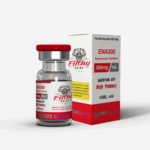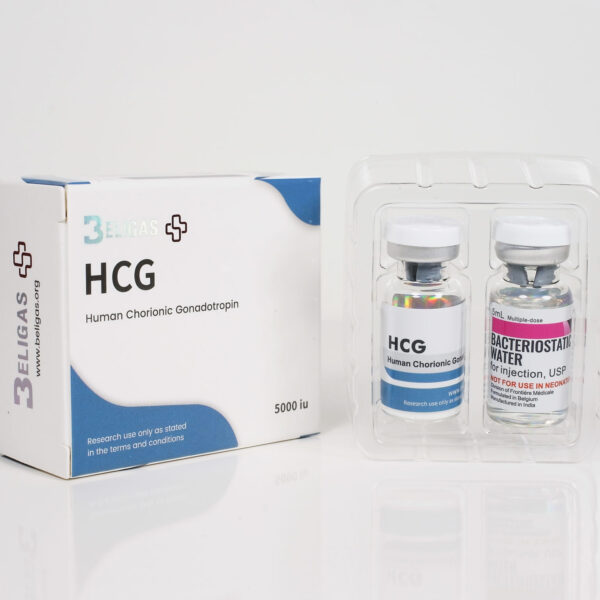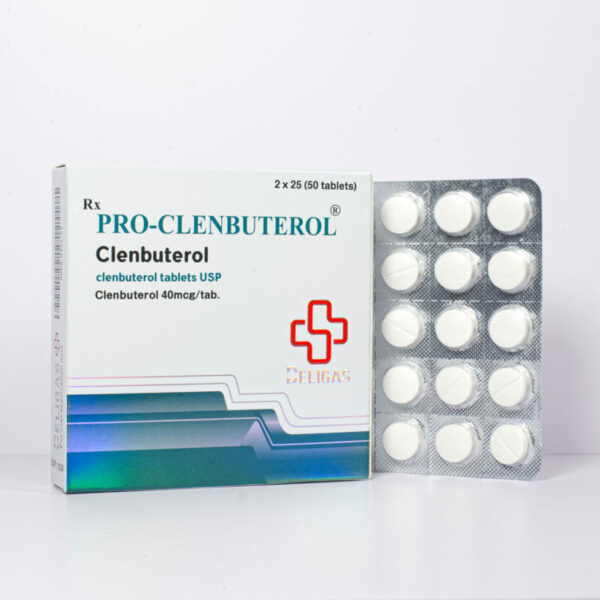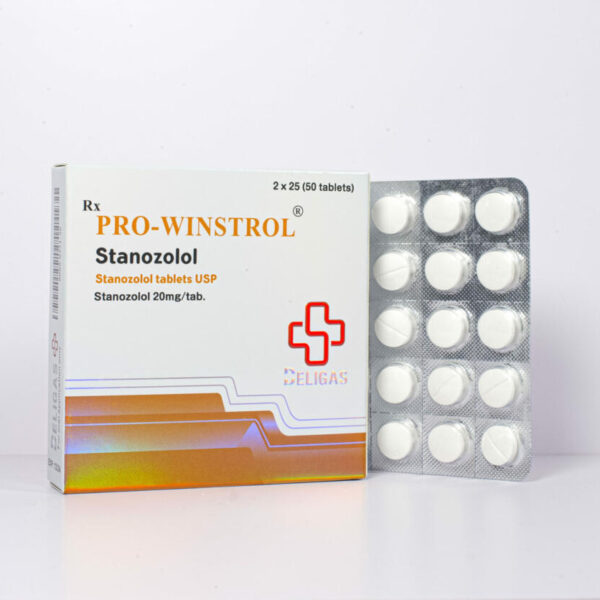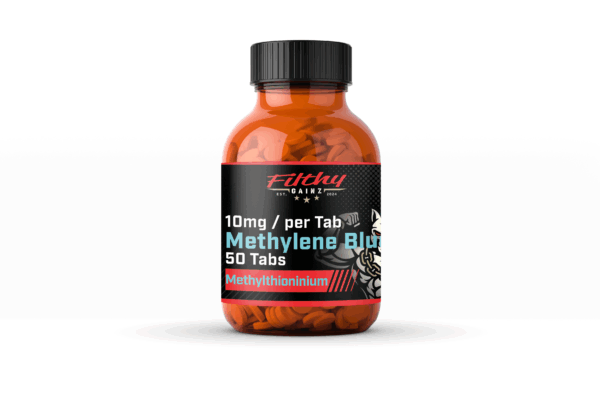

Methylene Blue 10mg (50 Tabs)
$44.99
Methylene blue is a salt used for various clinical purposes. It was first synthesized in 1876 and was tested as an antimalarial drug at the end of the 19th century. It is commonly used to treat methemoglobinemia, a condition in which the blood loses its ability to carry oxygen.
Methylene blue has also been shown to improve hypotension (low blood pressure) associated with concurrent kidney and liver failure. Studies have also shown that it might effectively treat malaria which has grown resistant to existing first-line antimalarial drugs.
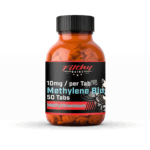
Methylene Blue 10mg (50 Tabs)
$44.99
- Description
Description
What is Methylene Blue?
Methylene blue, the chemical name methylthioninium chloride, is a dye. It was initially synthesized in 1876 by German chemist Heinrich Caro. In 1891, methylene blue was used to successfully treat malaria, though this use was shelved following the arrival of chloroquine. [R]
However, recent research has shown that methylene blue solution can treat malaria that has grown resistant to existing antimalarial drugs. Specifically, it has been shown to inhibit Plasmodium falciparum, a type of malaria that is often severe and life-threatening. [R]
In addition to its antimalarial activity, methylene blue has demonstrated the ability to prevent and treat methemoglobinemia. It is a condition in which the blood loses its ability to carry oxygen throughout the body. If not treated, methemoglobinemia can cause death. [R]
Recent research has revealed the potential anti-cancer and neuroprotective properties of this substance. Some of its neuroprotective properties, such as the ability to decrease the production of reactionary oxygen species (ROS), are relevant to Alzheimer’s. [R][R][R]
May For Research Purposes Stack Well With:
- Noopept
- Aniracetam
- Alpha GPC
How does Methylene Blue Work?
Here are the proven effects of Methylene blue:
Converts the Ferric Ion in Red Blood Cells (Hemoglobin) to a Ferrous Ion
Methemoglobinemia is caused by the presence of iron in the ferric form (Fe3+) instead of the usual reduced ferrous form (Fe2+). [R][R]
Acts as an Electron Donor to the Complex I-IV of the Mitochondria
This enables it to increase adenosine triphosphate (ATP) production. ATP is an energy-carrying molecule that is vital for cell function and life. [R]
Increases Heme Synthesis
Heme is a protein that performs various important biological functions in the body. Its two major biological functions involve carrying oxygen and transporting or storing electrons. [R][R]
Increases the Amount of NAD+ Produced by Mitochondria
NAD+, or nicotinamide adenine dinucleotide, is a coenzyme found in every cell of the body. Directly and indirectly, it influences hundreds of metabolic processes. [R][R]
Acts as an Antioxidant in Mitochondria
Methylene blue demonstrates this effect at low doses. At high doses, it has been shown to promote oxidative stress, which is harmful to your body and overall health. [R]
Methylene Blue Research
What follows is a summary of the existing research on methylene blue.
The information presented in this section is for educational purposes only and doesn’t constitute medical advice. Gear City only sells USP Grade Methylene Blue for laboratory and testing purposes.
Methylene Blue and Methemoglobinemia
Methemoglobinemia is a condition in which the body carries higher-than-normal amounts of methemoglobin (MG). MG is a protein that cannot carry oxygen efficiently. Its raised levels in the blood can cause blue skin, shortness of breath, coma, and even death. [R]
Research has shown that methylene blue restores blood’s oxygen-carrying capacity by converting methemoglobin to hemoglobin (HB). It does that by oxidizing NADPH, an important electron donor that produces Leuk methylene blue, which then converts MG to HB. [R]
Due to its ability to reduce methemoglobin levels in the blood, methylene blue USP has earned Food and Drug Administration’s (FDA) approval to treat acquired methemoglobinemia. Gear City doesn’t sell MB for human consumption. Speak to your doctor to know more. [R]
Methylene Blue and Septic Shock
Septic shock is a life-threatening condition. It occurs when your blood pressure drops dangerously low after an infection. At first, the infection results in sepsis, a condition that kills 11 million people each year, nearly 270,000 of whom are in the USA. [R][R]
A clinical review of 16 published articles has reported that MB may have a role as an adjunct therapy in septic shock. The authors recommended administering MB to patients in septic shock when low blood pressure persists, despite vasopressor administration. [R]
Even more promising results were obtained in a clinical trial involving septic shock patients. It was found that the administration of MB produced a transient and reproducible increase in blood pressure. This effect was associated with an improvement in cardiac function. [R]
Methylene Blue and Malaria
Methylene blue is the oldest synthetic antimalarial drug. However, after the advent of more clinically effective antimalarial drugs, MB’s use to treat malaria was abandoned. Still, results from recent research have renewed interest in its antimalarial effects. [R]
Studies have shown that MB has a similar mode of action as chloroquine (CQ). It has also been found to selectively inhibit the Plasmodium falciparum glutathione reductase. Furthermore, this substance has exhibited the potential to reverse CQ resistance in the body. [R]
A clinical review of 21 studies that involved 1,504 patients showed that MB was consistently effective in treating and reducing symptoms of malaria. However, MB treatment was associated with a blue coloration of urine and mild gastrointestinal symptoms. [R]
Methylene Blue and Cognitive Performance
According to a clinical trial of 26 adults, low doses (0.5 – 4.0 mg/kg body weight) of MB produced a 7% increase in memory retrieval compared to a placebo. Compared with control subjects, those administered MB experienced increased MR imaging activity during specific tasks. [R]
In a pre-clinical study, methylene blue improved memory retention in avoidance and appetitive tasks. It also restored spatial memory impaired by an inhibitor of cytochrome oxidase. It was also noted that MB might improve memory retention by increasing brain oxygen utilization. [R]
Methylene Blue and Claustrophobia
Another trial investigated the effects of MB in adults with claustrophobia. All the participants were required to undergo 5 minute-extinction tests in an enclosed chamber. Based on their behaviors after the extinction trial, the trial was dubbed successful or unsuccessful. [R]
Afterward, both sets of adults were administered MB (260 mg) or a placebo. Results showed that MB enhanced memory and retention of fear extinction when administered after a successful session. However, it had a harmful effect when given after an unsuccessful session. [R]
Methylene Blue and Alzheimer’s Disease
In one phase II clinical trial, six months of MB treatment improved the cognitive functions of Alzheimer’s disease (AD) patients. [R]
A pre-clinical study reported that chronic dietary MB treatment reduces amyloid-beta levels in mice with AD. The treatment was also found to improve learning and memory deficits. [R]
Methylene Blue and Depression
According to a 3-week, placebo-controlled trial, methylene blue appeared to be a suitable antidepressant at a dose of 15 mg/day. The trial involved 35 physically healthy female patients suffering from a severe depressive illness. Few side effects were observed. [R]
Methylene Blue and Bipolar Disorder
In a randomized crossover study, methylene blue (195 mg) improved symptoms of depression in patients with bipolar disorder. It also reduced the symptoms of anxiety compared to a placebo. The medication was well-tolerated, with transient and mild side effects. [R]
Summary
Methylene blue is a blue dye and a bioactive substance. Research has shown that it can effectively treat methemoglobinemia, malaria, and hypotension. It has also been found to reduce symptoms of depression and bipolar disorder in patients with these conditions.
Related Products
-
Beligas Pharmaceutical, Clenbuterol, Oral Steroids, Oral Steroids and AI (USA), PCT, USA Warehouse
Clenbuterol 40mcg
0 out of 5$114.99Original price was: $114.99.$79.99Current price is: $79.99. -
Ancillaries (USA), Beligas Pharmaceutical, HGH, Human Growth Hormone, Human Growth Hormone (USA), Injectable Steroids, USA Warehouse
Beligas Human Growth Hormones
0 out of 5$349.99Original price was: $349.99.$299.99Current price is: $299.99. -
Beligas Pharmaceutical, Oral Steroids, Oral Steroids and AI (USA), USA Warehouse
Hypho® Viagra 50mg
0 out of 5$99.99Original price was: $99.99.$69.99Current price is: $69.99. -
Beligas Pharmaceutical, Oral Steroids, Oral Steroids and AI (USA), USA Warehouse, Winstrol Oral
Pro®-Winstrol 20mg
0 out of 5$105.95Original price was: $105.95.$79.99Current price is: $79.99.

